I'll Get By
Brief Synopsis
Cast & Crew
Richard Sale
June Haver
William Lundigan
Gloria Dehaven
Dennis Day
Harry James
Film Details
Technical Specs

Synopsis
In December 1939, William Spencer, a song plugger for Leo Feist Inc. in New York, rushes one of the company's new records to disc jockey Peter Pepper. While en route, he crashes into a door being opened by a young woman, Liza Martin, and later discovers that the record is broken. After Bill gives Peter one of his own recorded songs to play, Peter takes it off the air in mid-broadcast, and Bill is fired. Bill is not unhappy, however, as he intends to open his own music publishing business. He rents a small office and hires a Miss Murphy as secretary, but the business does not prosper. When Texan Freddy Lee brings him a song and asks how much it would cost him to have it published, Bill makes him a partner. However, the song does not sell well, and they soon find themselves behind on the rent. Having grown up with singer Terry Martin, Freddy suggests they sell some songs to her and her sister Liza, who are appearing with Harry James at the Chi Chi Club. Chester Dooley, a pianist at a small club in Greenwich Village, then brings them a song he wants to have published, and Bill acquires another partner. When Bill and Freddy go to the Chi Chi Club and meet Terry and Liza, Bill recognizes Liza as the girl he bumped into at the radio station, while Terry remembers Freddy as a creep. However, Bill and Freddy manage to persuade the girls to try their music. After the show, they all go for coffee at "The Joint," where Dooley is playing. Liza and Terry try his song, "I'll Get By," and eventually they record it and it becomes a big hit. As the company expands and publishes several hits, Liza pursues Bill while Terry tolerates Freddy. Liza and Terry get a new contract with a Hollywood record company, so Bill and Freddy decide to open a western office. In 1941, the Martin sisters are invited to perform at a gala benefit concert for the Free French, and Bill arranges for them to perform a new song with music by George Gershwin. Bill is in his suite at the Hollywood Roosevelt Hotel when Jeanne Crain phones to say that she has heard about the Gershwin song and would like to do it at the benefit. As Bill has already promised the song to Liza, he tells Jeanne that it's not her type of song. Unknown to Bill, Freddy, thinking Bill had set it up, unwittingly agrees to let Jeanne do the song. When Liza finds out, she walks out on Bill. Another disaster occurs when ASCAP, the society representing composers and publishers, bans broadcast music, forcing stations to play only public domain material. Next, Bill and Freddy are drafted into the Marines. At their base in San Diego, they meet Miss Murphy, who is now an officer and she tells them that Liza and Terry have been signed by Twentieth Century-Fox and are currently shooting a movie. After Miss Murphy arranges leave for Bill and Freddy, they try to get into the studio. Actor Reginald Gardiner recognizes their names and advises Terry that they are at the gate, but Terry tells him that Liza will not see Bill. Miss Murphy goes to see Liza and after reminding her of Bill's good qualities, tells her that he never gave the song to Jeanne Crain. The next day, Reggie drives Liza to the San Diego Marine Base to see Bill, but they have already shipped out to the South Pacific. Liza and Terry sign up for U.S.O. tours and eventually wind up at a base in the South Pacific, where Freddy welcomes them. Terry rediscovers Freddy and agrees to marry him but refuses to live on a farm in Texas. However, she quickly changes her mind when she learns that Freddy owns the largest mink farm in Texas. Later during their show for the troops, the girls bring up Private Dan Dailey from the audience to join in a number. As it ends, a Marine general receives a message, which he then reads to the troops--Germany has surrendered. Bill returns from patrol, and he and Liza embrace.

Director
Richard Sale
Cast

June Haver

William Lundigan

Gloria Dehaven

Dennis Day
Harry James

Thelma Ritter

Steve Allen
Danny Davenport
Harry Antrim
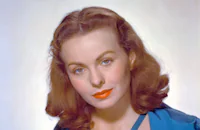
Jeanne Crain

Victor Mature
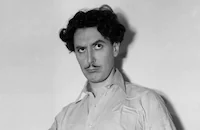
Reginald Gardiner

Dan Dailey
Tom Hanlon
Peggy O'connor
Harry Seymour
Charles Tannen
Don Hicks
Harry Lauter
Vincent Renno
Erno Verebes
John Trebach
Tom Greenway
Thomas F. Martin
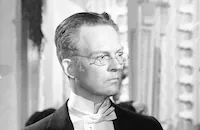
Don Dillaway
Lester Dorr
Wilson Wood
Stanley Prager
Carol West
Robin Short
Bob Mccord
Alan Block
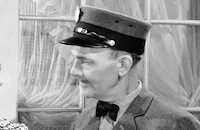
John Butler
Frank Mills
Aileen Carlyle
Nolan Leary
John Close

John Hamilton
James Hickman
Dick Winslow
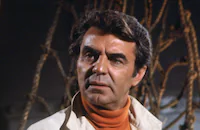
Paul Picerni

Kathleen Hughes
Jess Mendelson
Hal Schaefer
Crew
Fred E. Ahlert
Lloyd Allen
Harold Arlen
Guy Bonham
Bill Buell
Robert Burns
Irving Caesar
Sammy Cahn
Wamp Carlson
Gertrude Casey
Larry Ceballos
Charles G. Clarke
Tom Connors
Esperanza Corona
Vince Degen
Glenn Delfino
B. G. Desylva
Leonard Doss
Doris Drought
Vernon Duke
Michael Edwards
Robert Ellis
Ted Fetter
Myrtle Ford
Stephen C. Foster
W. Fritchman
George Gershwin
Mack Gordon
Bud Green
Earle Hagen
Charles Hall
Pamela Harris
June Hershey
R. L. Hough
Richard Irvine
Arthur Jacobson
Ted Koehler
Lou Kunkel
Kenneth Lang
Red Latham
John Latouche
Charles Lemaire
Harry M. Leonard
George Leverett
Thomas Little
Helen Logan
Mary Loos
Norman Martien
Jack Matthias
James V. Monaco
Josef Myrow
Lionel Newman
Red Norvo
Ben Nye
Shamus O'connor
William Perlberg
Stuart Reiss
Leo Robin
Richard Sale
Emmett Schoenbaum
Fred Sersen
Herbert Spencer
John J. Stamford
Jule Styne
Don Swander
Travilla
Roy Turk
Tom Tuttle
Harry Warren
J. Watson Webb Jr.
Lyle Wheeler
Joseph C. Wright
Darryl F. Zanuck

Film Details
Technical Specs

Award Nominations
Best Score
Quotes
Trivia
The set used for the Martin sisters' apartment is the identical set used that same year by Fox for Margo Channing's apartment in All About Eve (1950).
Notes
The following information was culled from the Twentieth Century-Fox Produced Scripts Collection and the Twentieth Century-Fox Records of the Legal Department, located at the UCLA Arts-Special Collections Library, and from material in the AMPAS Library: Early drafts of I'll Get By were written by Harry Tugend, but the extent of his contribution to the released film has not been determined. Some musical numbers and other sequences were shot and subsequently discarded. Although Harry Antrim was billed onscreen, the sequence in which he portrayed a banker was deleted from the final cut. Victor Mature replaced Clifton Webb in a cameo appearance.
Music from a number of songs written by Harry Warren and Mack Gordon, including "I Know Why," "The More I See You," "I Wish I Knew," "I Had the Craziest Dream," "People Like You and Me" and "You'll Never Know," were used in the background score. Famed vibrophonist Red Norvo contributed an arrangement of "I'll Get By" to the picture and, according to modern sources, recorded it for the soundtrack with Tal Farlow on guitar and Red Kelly on bass. However, none of these musicians perform the number onscreen. Jack Matthias wrote the musical arrangements for the Harry James numbers.
During a sequence set at the Roxy Theater in New York, music from Alfred Newman's score for the 1940 Twentieth Century-Fox film The Blue Bird is briefly heard. The film's end credits include song titles, composers, lyricists and, unusually for 1950, publishers. Lionel Newman was nominated for an Academy Award for Best Scoring of a Musical Picture for his work on the production. I'll Get By was loosely based on a 1940 Twentieth Century-Fox film entitled Tin Pan Alley, which was directed by Walter Lang and starred Alice Faye and Betty Grable (see AFI Catalog of Feature Films, 1931-40; F3.4664).












